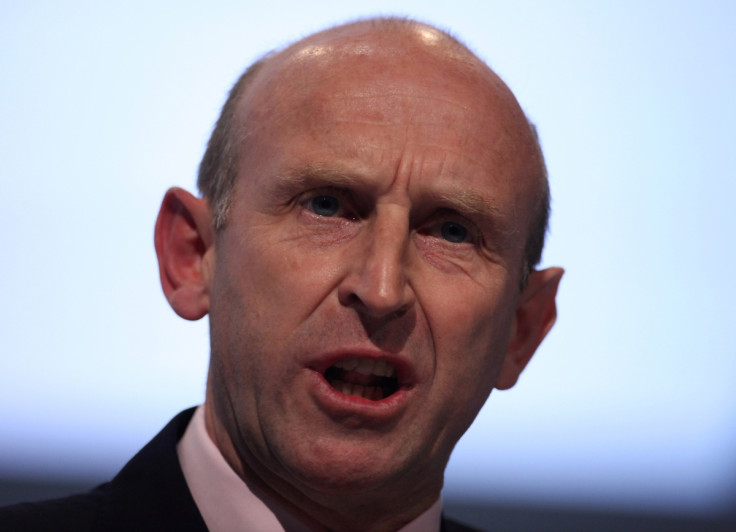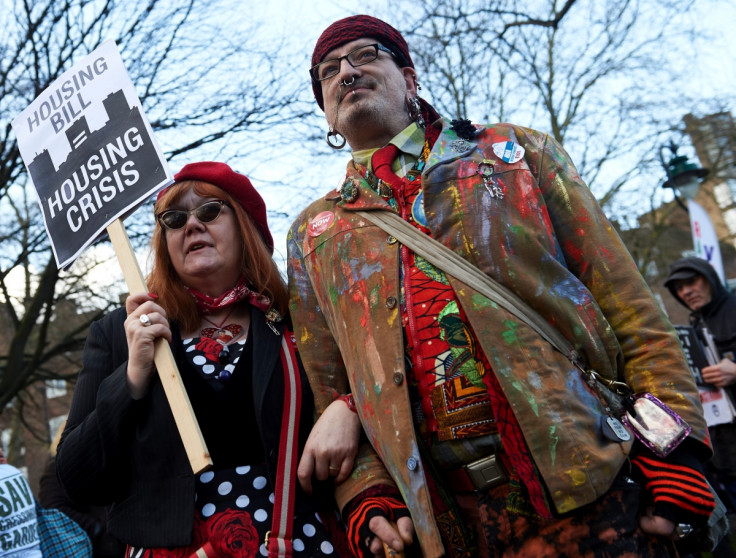Labour's John Healey: Tories will pass their 'extreme' housing bill but not without a fight

Labour's shadow housing minister John Healey said he expects the controversial Housing and Planning Bill to pass quickly into law, despite fierce opposition in the House of Lords, which has handed the government several defeats.
The bill, which the government says will increase home-ownership and housebuilding, is in its final stages in the Lords when peers can make amendments. Before it can achieve Royal Assent and enter the statute book, the amended housing bill will be sent back to the Commons, which must sign off the final text.
A cross-party coalition of the bill's opponents in the Lords has already defeated the government on three amendments, watering down its key components, including the flagship "starter homes" policy offering discounted homes for first-time buyers. More defeats for the government are anticipated as peers work through and alter the bill.
If the Commons does not agree with the Lords' amendments, the bill enters a delaying back-and-forth between the two houses of parliament, called "ping-pong", in a bid to reach agreement. If no deal can be reached, the bill will fall, though the Commons has powers under the Parliament Act to force legislation through even if the Lords disagrees.
"Through the House of Commons we were winning arguments but losing votes," said Healey, who told IBTimes UK in an interview at his Westminster office that the bill is "extreme". "We're still winning the arguments and we're starting to win some of the votes. But the bill will pass. The question is how far we can knock some of the sharpest edges off the worst aspects of what's in the bill."
Pressed on whether a Labour government would repeal the housing bill if it were to pass into law, Healey was equivocal. "It's hard to see how what's in the bill provides any of the right answers to the challenges we've got with the housing crisis in this country and I am certain that the effect of this bill will be to continue the failure I see on all fronts as I see it over the past six years," he said. "We will have to have a government, whether that's a Labour government or a Tory government, that has a change of direction and does things differently. And that's what we'll have to do."
Lords amendments
One successful amendment by the government's opponents would force buyers of starter homes to pay back the 20% discount if they sell within 20 years, with the amount owed reduced by one-twentieth for every year of occupation. Brandon Lewis, the Conservative housing minister, said he would listen carefully to peers but his support for the starter homes discount "is unwavering".
Another amendment backed by peers would allow councils to decide how many starter homes can be built in their areas. Many councils oppose starter homes, which under the housing bill can be classed as affordable, because they think it will result in less housing for social rent.
Developers are obliged to agree either a community payment or the construction of affordable housing to secure planning consent. Councils are worried developers will prioritise the more profitable starter homes at the expense of housing at affordable rents.
The bill also seeks to compel councils to sell their most valuable empty housing stock to fund an extension of the right to buy to housing association tenants. It would then have given the Treasury the power to take that revenue back into a central pot. But the third successful amendment will force governments to seek parliamentary approval before the Treasury can take this money from councils.
There are a number of radical changes in the bill which face amendment by the Lords. They include so-called "pay to stay", which will make those on higher incomes in social housing pay market rents. The government had planned for a £30,000 income threshold outside London, and £40,000 inside, above which it would make tenants pay market rent, arguing it is fairer to taxpayers that those who earn more should not have their housing costs subsidised by others. But it has since suggested it will review this threshold with a view to making it higher.
On 18 April, the House of Lords will debate an amendment by Labour's housing spokesman Lord Kennedy which would set these income thresholds at £50,000 inside London and £40,000 outside. "It remains to be seen how far the government will go on that — this is really, if you think about it, a crude cap on aspiration," said Healey, who was housing minister under Gordon Brown, arguing it would disincentivise families from trying to earn more so they stayed beneath the income threshold and kept their rent lower.
Another contentious measure in the bill is the right to rent, which will force landlords to check the immigration status of their tenants. Those found housing illegal immigrants will be fined. The government argues this will stop landlords exploiting illegal immigrants and also make it harder for them to stay in the country. But critics say some landlords will discriminate against non-Britons, in particular those from minority ethnic backgrounds, rather than undertake time-consuming checks and risk a fine.
The housing bill also seeks to abolish lifetime tenancies in council housing. It will only apply to new tenancies. Those who need a council house in the future will be offered tenancy contracts of between two and five years. At the end of the tenancy, it will be reviewed by council officials. If they conclude that council housing is no longer needed, and the tenant could buy or rent in the private market, they will end the tenancy. The government says this will free up social housing for those who need it, but opponents say it will break up communities and cause insecurity and instability for council tenants.
Building more homes

Ultimately, more housing is needed in England, particularly London and the south east. Housebuilding is on the rise. There were 142,890 housing completions in the 12 months to December 2015, a 21% annual increase. New housing starts also rose, though more slowly. There were 143,560 starts, a 6% rise year on year. But the lowest estimates of new housing needed in England are around 200,000 a year, meaning supply is running far short of demand.
There are a number of structural factors holding back construction, including a skills shortage. The sector was hollowed out after the financial crisis and output collapsed. Now the sector is growing again, but struggling to attract labour back in.
Healey said the failure to build enough housing goes beyond a skills shortage and that it is possible to build enough homes "but not without a recognition that we've at no stage since the end of a large-scale public housing programme topped 200,000 a year".
He added: "So since the late 1970s there's only been one year, in 1989 at the height of the unsustainable Lawson boom, where we've topped 200,000 new homes built. It requires a recognition that we need more from the private sector, but we've also got to have the public sector playing a part as well. That is inescapable if we are going to build the number and range of homes that we need in this country."
© Copyright IBTimes 2024. All rights reserved.






